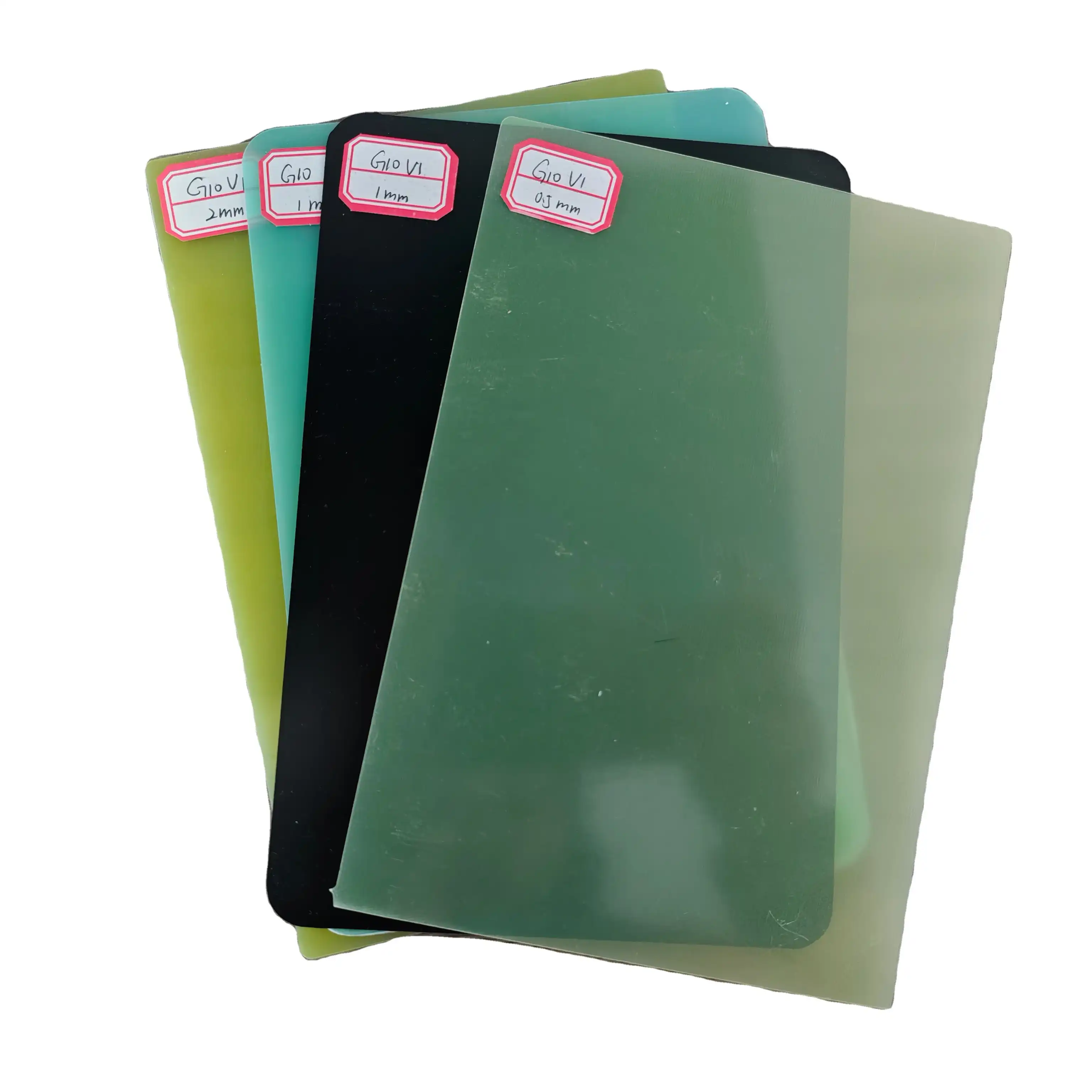Understanding G10 Fiberglass Sheets and Their Properties
Composition and Manufacturing Process
G10 fiberglass sheets are composite materials comprised of epoxy resin reinforced with woven glass fabric. The manufacturing process involves impregnating multiple layers of glass cloth with epoxy resin, then subjecting the layered material to heat and pressure. This process, known as lamination, results in a dense, uniform, and highly durable sheet material. The specific composition and layering techniques can be adjusted to achieve desired properties, making G10 sheets highly customizable.
Key Properties of G10 Fiberglass Sheets
G10 fiberglass sheets boast an impressive array of properties that make them suitable for a wide range of applications. These properties include high mechanical strength, excellent electrical insulation, low moisture absorption, dimensional stability across a wide temperature range, and good machinability. The combination of these characteristics makes G10 sheets an ideal choice for industries requiring materials that can withstand harsh environments while maintaining their performance.
Advantages Over Other Materials
When compared to other materials, G10 fiberglass sheets offer several advantages. They provide superior strength-to-weight ratio compared to many metals, making them suitable for lightweight applications. Unlike some plastics, G10 sheets maintain their properties at elevated temperatures and have excellent chemical resistance. Their electrical insulation properties surpass those of many traditional materials, making them indispensable in the electronics industry. Additionally, the ability to customize G10 sheets allows for optimized performance in specific applications, giving them an edge over standardized materials.
Customization Techniques for G10 Fiberglass Sheets
Tailoring Physical Dimensions
One of the primary ways to customize G10 fiberglass sheets is by adjusting their physical dimensions. Manufacturers can produce sheets in a wide range of thicknesses, typically from 0.2mm to 50mm or more. The length and width of the sheets can also be customized to fit specific project requirements, reducing waste and simplifying installation processes. Advanced cutting techniques, including water jet cutting and CNC machining, allow for precise shaping of G10 sheets into complex geometries, further expanding their application potential.
Modifying Resin Systems
The choice of resin system plays a crucial role in determining the properties of G10 fiberglass sheets. While epoxy resin is standard, manufacturers can modify the resin formulation to enhance specific characteristics. For instance, flame-retardant additives can be incorporated to improve fire resistance, or specialized resins can be used to increase chemical resistance or thermal conductivity. Some applications may require resins with low outgassing properties for use in vacuum environments, or resins with improved UV stability for outdoor applications.
Altering Reinforcement Materials
While glass fabric is the typical reinforcement material in G10 sheets, customization can involve altering the type or arrangement of this reinforcement. Different grades of glass fiber can be used to achieve specific strength or electrical properties. In some cases, hybrid reinforcements combining glass with other materials like carbon fiber or aramid can be employed to create sheets with unique property combinations. The weave pattern and orientation of the reinforcement layers can also be adjusted to optimize directional properties, such as strength or thermal expansion.
Industry-Specific Applications and Customization Examples
Aerospace and Defense
In the aerospace and defense sectors, G10 fiberglass sheets find applications in structural components, radomes, and insulation panels. Customization for these industries often focuses on weight reduction without compromising strength. For example, manufacturers may produce ultra-thin G10 sheets with specialized resin systems that offer enhanced impact resistance and flame retardancy. Another customization approach involves creating G10 sheets with tailored dielectric constants for use in antenna systems, ensuring optimal signal transmission and reception.
Electrical and Electronics
The electrical and electronics industry heavily relies on G10 fiberglass sheets for circuit boards, insulators, and switchgear components. Customization in this sector often involves precise control of electrical properties. Manufacturers may adjust the glass-to-resin ratio or incorporate specific additives to achieve desired dielectric strength and loss tangent values. For high-frequency applications, G10 sheets can be customized with low-loss resins and carefully controlled thickness tolerances to maintain signal integrity.
Industrial and Manufacturing
In industrial applications, G10 fiberglass sheets are used for machine parts, wear plates, and thermal insulation. Customization for these uses often focuses on enhancing mechanical properties and chemical resistance. For instance, sheets can be produced with increased thickness and density to improve wear resistance in high-abrasion environments. Specialized surface treatments or coatings can be applied to G10 sheets to enhance their resistance to specific chemicals or to improve their non-stick properties for use in manufacturing processes.
Conclusion
The customization of G10 fiberglass sheets presents a world of possibilities for industries seeking tailored solutions to their unique challenges. By leveraging the material's inherent versatility and working closely with experienced manufacturers, businesses can obtain G10 sheets that precisely meet their specific needs. Whether it's adjusting physical dimensions, modifying resin systems, or altering reinforcement materials, the customization options are vast and varied. This flexibility not only allows for optimized performance in diverse applications but also drives innovation across industries, from aerospace to electronics and beyond.
Contact Us
Ready to explore how customized G10 fiberglass sheets can benefit your industry? Contact our expert team today at info@jhd-material.com to discuss your specific requirements and discover the perfect G10 solution for your needs.






